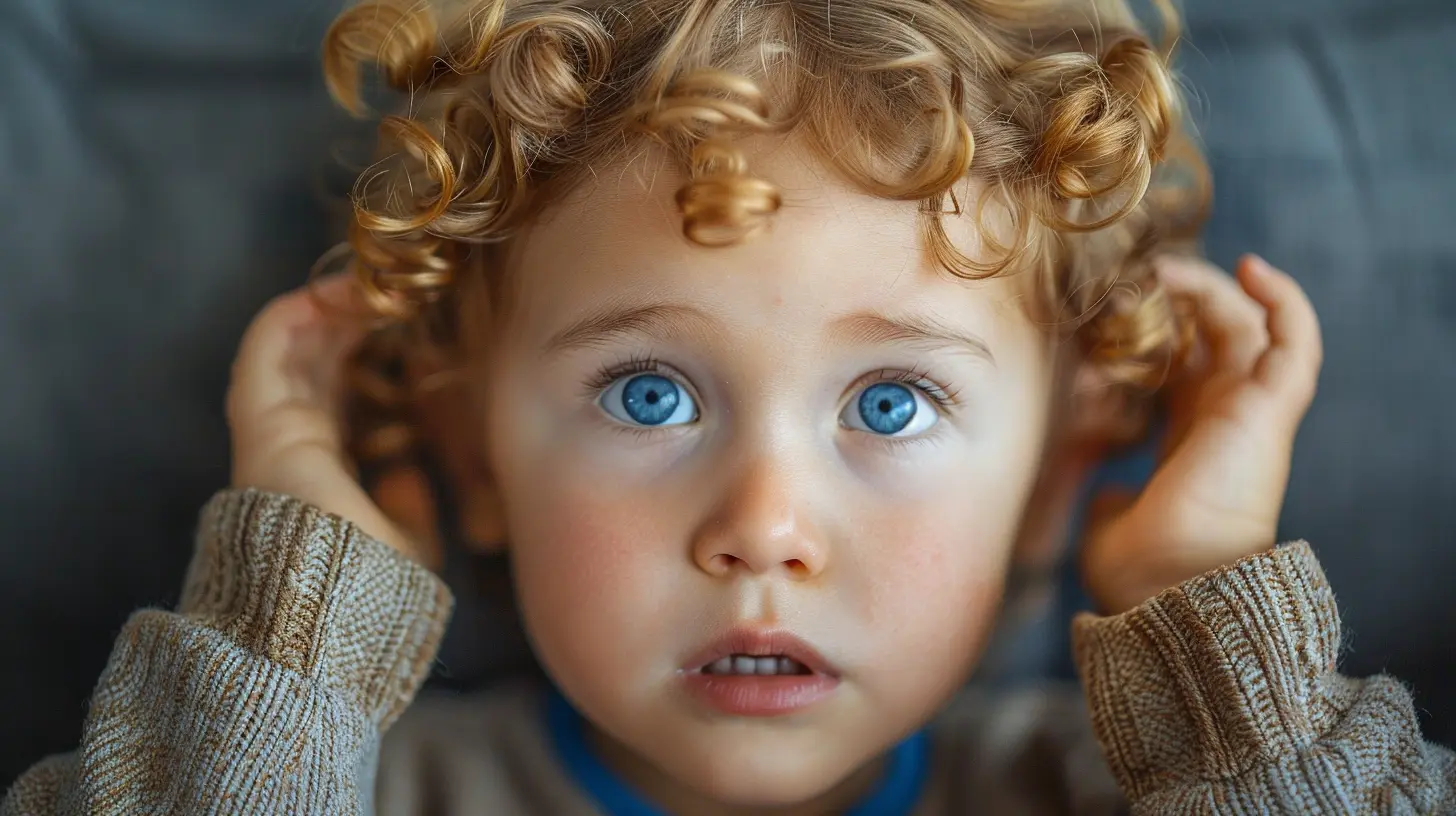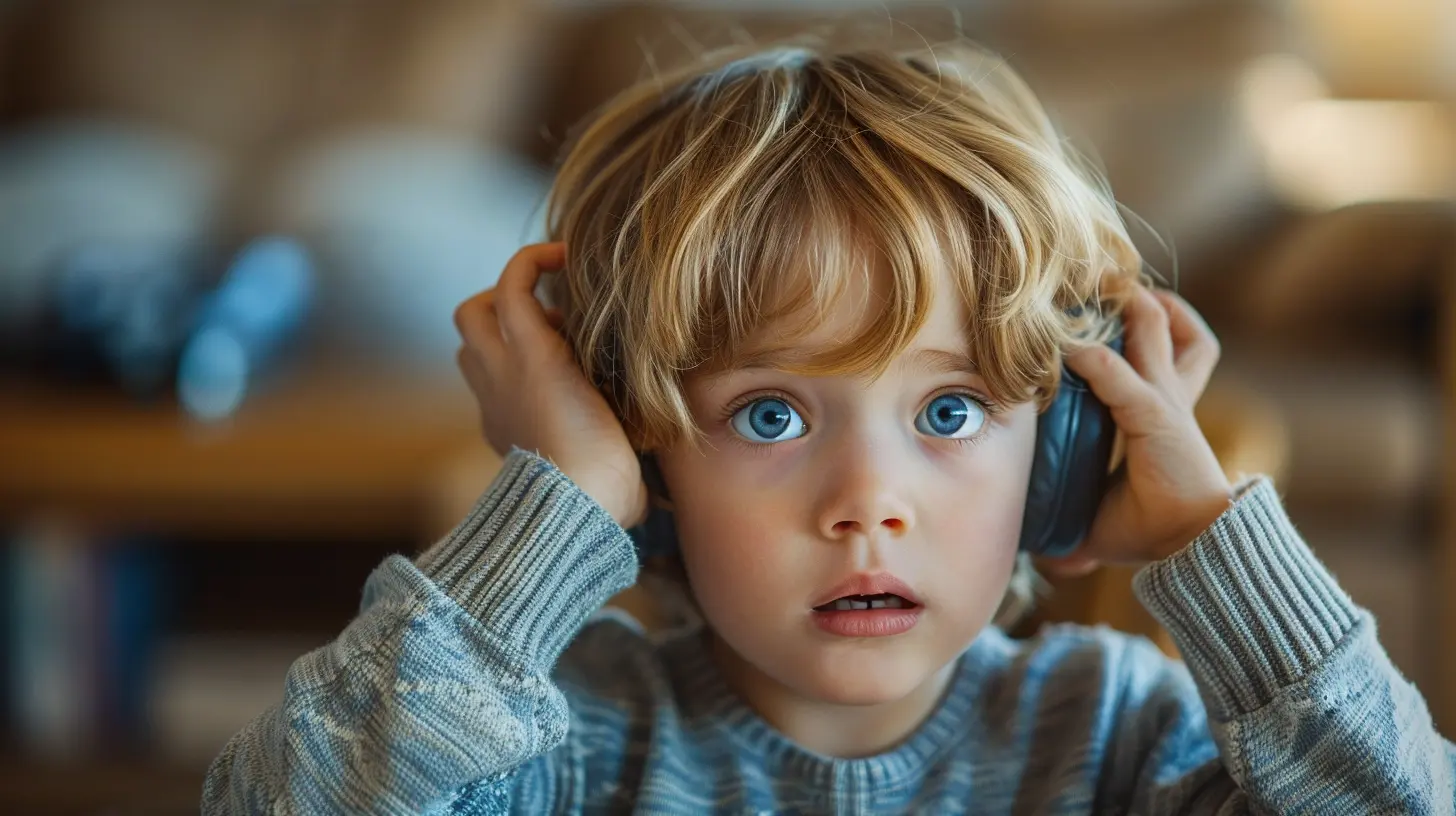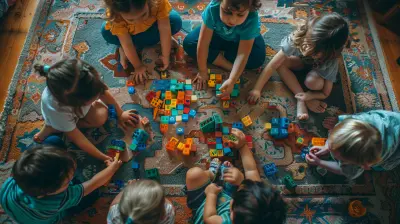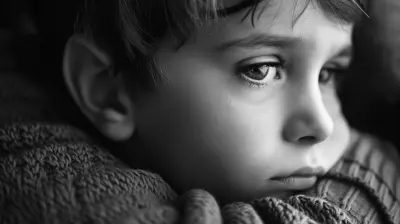20 February 2025
Fear of loud noises is a common challenge among children, and if you’re a parent wondering how to help your little one navigate these overwhelming sounds, you’re certainly not alone. Whether it’s the deafening roar of fireworks, the sudden blare of a vacuum cleaner, or even thunder, loud sounds can trigger anxiety in kids. But here’s the thing: it’s completely normal for children to experience fear of loud noises. What’s important is how we, as loving caregivers, choose to respond, comfort, and guide them through it.
In this article, I’m going to walk you through gentle strategies to help ease your child’s fear of loud noises. By understanding where that fear comes from and how to approach it with empathy and patience, you can make all the difference in helping your child feel more secure when the world gets a little too noisy.
Why Do Children Fear Loud Noises?
Let’s start with the basics: why do kids have such a strong reaction to loud noises?The simple answer is that loud sounds can be startling and unpredictable. For a young child, the world is big, overwhelming, and filled with unknowns. Noisy events like fireworks, sirens, or even a blender can feel like an unexpected intrusion into their safe space. And we all know that surprises are not always fun, especially for a toddler who craves routine and predictability.
Children also have more sensitive hearing than adults. Their ears are still developing, which makes them perceive loud noises more intensely. It’s like when someone turns the volume up on a TV while you're holding the remote—sudden, jarring, and uncomfortable.
In some cases, fears about loud noises can be tied to past experiences. Maybe they were scared by a loud sound before, and now they’ve begun to associate all loud sounds with that frightening experience.
Signs Your Child May Be Afraid of Loud Noises
Not all children express their fears in the same way, especially when it comes to things like sounds. Some kids might cover their ears, while others may become clingy, cry, or even run away. Here are a few more signs that your child might be afraid of loud noises:- Clinging to a parent or caregiver when they hear something loud.
- Crying or panicking when bracing for a noise (like fireworks or thunder).
- Avoiding certain places or activities because they expect loud sounds (e.g., crowded events, movie theaters, or malls).
- Covering their ears or closing their eyes when anticipating a noise.
Recognizing these signs early can help you address the fear before it becomes overwhelming for them. And yes, it may feel stressful for you too, but remember: it’s all part of their emotional growth.
The Importance of Gentle Approaches
Before diving into practical tips, let me emphasize one crucial aspect: gentleness. Using gentle approaches when addressing your child’s fear is key. Why? Because fear is an emotion, and emotions need to be validated, not dismissed. Telling your child "It’s not a big deal" or "Don’t be scared" may unintentionally minimize their feelings.Think of it like being scared of heights. If someone tried to force you onto a rollercoaster and told you, "Just get over it," would it magically make you unafraid? No way! Instead, you’d probably feel even more anxious. The same principle applies to kids.
Instead, we want to guide them slowly and compassionately toward overcoming their fear.
Gentle Strategies to Help Ease Fear of Loud Noises
So, how do you actually help your child manage their fear of loud sounds without making it worse? Let’s dive into some tried-and-true gentle techniques that work wonders.1. Acknowledge Their Fear
The first step in helping your child is to acknowledge their fear. Telling them "It’s okay to be scared" or "I understand that loud noises can feel scary" can provide them with a sense of validation. When kids know that it’s okay to feel afraid and that they are not being judged for their emotions, they’re more likely to open up and start working through those fears.Let’s face it: we all need a little validation sometimes, right? We're human, after all. Children are no different. By acknowledging their fear, you’re giving them a safe space to experience it without shame.
2. Prepare Them in Advance
Children are more likely to feel anxious about loud noises when they are taken by surprise. Preparation is key when you know loud sounds are coming, like fireworks on the 4th of July or the vacuum cleaner on cleaning day.Before the noise happens, talk to your child. Use simple language to explain what’s going to happen. For example, “We’re going to hear some really loud sounds soon, but I’ll be right here with you.” By preparing them in advance, you remove the element of surprise, which can significantly reduce anxiety.
Think of this as giving them a “heads-up” just like you’d warn a friend when they’re about to step into a cold pool—you’re helping them ease into it.
3. Create a Safe Space
Having a safe space can make all the difference for a child dealing with fear. This could be a familiar room, blanket, or even a favorite toy that they can hold on to during moments of anxiety. When children have a comforting object or environment, it provides them with a sense of security amid chaos.Another option is to use noise-cancelling headphones or earplugs to soften the intensity of loud sounds. Sometimes, just knowing they have these tools can give them the confidence to face louder environments.
4. Model Calmness
Kids are like little emotional sponges. They soak up the reactions of the adults around them. If they see you jump or get frustrated when a loud sound happens, they’ll likely mirror that anxiety. On the other hand, if you stay calm and composed, it sends a message: “Hey, everything’s okay. We’re safe.”Next time a loud noise occurs, take a deep breath and speak to your child in a relaxed, soothing tone. You’d be surprised how powerful parental calm can be in transforming a child’s reaction.
5. Practice Exposure in Small Steps
Exposing your child to loud noises gradually is another highly effective method, also known as "desensitization." Not to sound too technical, but think of it like teaching someone how to swim by starting with shallow water instead of throwing them into the deep end right away.Start with softer, more controlled loud sounds, like playing a video of fireworks at a low volume or letting them stand at a distance while you vacuum. As they begin to tolerate these smaller steps, you can slowly increase the volume or bring them closer. Keep a close eye on their comfort level—pushing too hard too fast can backfire.
6. Engage Them in Play
Remember how everything seems a little less scary when it’s fun? Play therapy can work wonders in helping kids process fears. You can make loud sounds less intimidating by incorporating them into play. For example, use musical instruments like drums or cymbals and let your child create their own loud noises in a playful context.You could even create a "noise parade" where you and your child bang pots and pans together. By having a little fun with loud sounds, you’re reframing the experience to be less threatening.
7. Offer Praise and Positive Reinforcement
When your child makes strides in handling loud sounds, whether it's a small improvement like not covering their ears during vacuuming or staying calm when a loud truck passes by, make sure to offer praise. Even if the progress seems minor to you, it’s a huge deal for them.You can say something like, "Wow, you did such a great job staying calm when we vacuumed today. I’m proud of you!" Positive reinforcement encourages them to keep making progress, knowing that their efforts are appreciated.
When to Seek Professional Help
Most kids outgrow their fear of loud noises naturally, but sometimes, the fear can become deeply ingrained. If your child’s fear starts to interfere with daily life—like avoiding going outside, attending events, or excessive distress—it might be time to consult a pediatrician or child psychologist. They can offer additional strategies and therapy to help children manage their anxieties healthily.But remember: it’s completely okay to ask for help. After all, parenting is all about learning and doing what’s best for your child, no matter the situation.
Final Thoughts
Helping your child overcome their fear of loud noises takes time, patience, and, most importantly, empathy. By acknowledging their feelings, preparing them in advance, creating safe spaces, and gently exposing them to noisy situations, you can help them navigate these fears without feeling overwhelmed.The goal isn’t to eliminate fear altogether (after all, fear is a natural emotion), but to help your child learn how to handle it with confidence and calmness. And trust me, as you guide them through this journey, they’ll pick up skills that will serve them well in many areas of life.
Because when a child learns that they can face their fears—whether they’re loud sounds or something else—it’s like unlocking a superpower that will stay with them forever.









Monique McCarthy
This article effectively balances empathy and practicality, guiding parents toward nurturing resilience in children.
March 26, 2025 at 5:33 AM